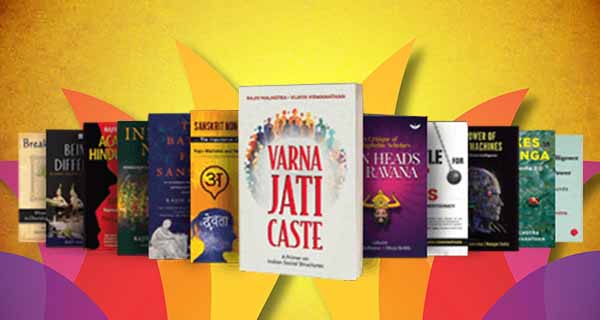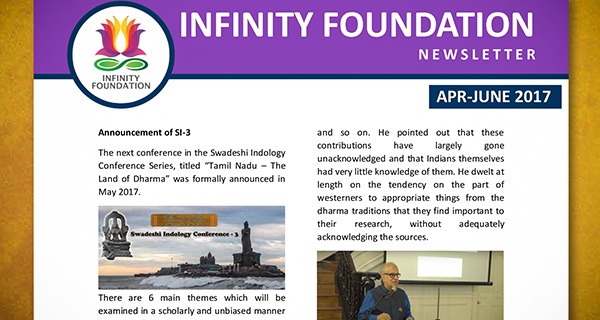International Conference on Indigenous Indic Traditions in Forestry
International Conference on Indigenous Indic Traditions in Forestry:
Lessons for Contemporary Sustainable Forest Management,
February 8-10, 2001, Bhopal, India
This conference intended to bring together practicing foresters, natural resource managers, scientists, community forestry experts, Indologists, and scholars who are working on Indigenous Indic Traditions in Forestry in an effort to discuss and move forward beyond the barriers that either continue to hamper the revival of Indic Traditions or restrict the integration of Indigenous Indic Traditions and indigenous knowledge and the formal sciences.
Participation was open to the foresters, historians, Indologists, natural resource managers, educationists and development practitioners from around the world. Participation is also solicited from the foresters working on indigenous knowledge, ethnoforestry and Indic traditions in forestry.
Newspaper article covering the Infinity Foundation sponsored conference in India.
Theme of the Conference
It is interesting to note that forestry traditions have existed even before the known sources of Indic traditions were encoded. And, these have continued to exist in vedic period, later vedic period and the puranic literature. In fact, if we consider the vedic reference closer to theory then the later vedic and puranic texts are definitely the practice manuals! Following these manuals common masses replicated the prescriptions on the ground for the benefit of the humanity. The most important fact is these traditions still continue to survive and continue to be practiced by the masses.
For instance, since the Rigvedic period through Puranic times there are numerous descriptions of the trees groves and tanks (talabs) in India. Varahamihira in 5th century AD wrote and with great detail on the tanks and trees relationship. These prescriptions were considered sacred and ethic demanded that the people should practice for the common good of the humanity. This phenomenon can be understood as a proven fact getting institutionalized by the cultural traditions. What resulted from this is amazing! A total of 1.53 million village tanks built from 2000 BC onwards still survive in India today. These tanks vary in size (0.5 ha to several hundred ha. of water harvesting area and a grove of few trees to very large groves). If India wants (there is no choice, though) sustainable development no science alone can solve the water problem. It must revive and support the traditions that are useful and have stood the test of time. In fact at several places revival of such traditions has been very encouraging. Examples suggest that this has resulted in the sustainable forestry and livelihood security.
Another case, for instance, is the ethnoforestry or the indigenous knowledge on forests in India. Several references are available on the role that forests and trees play and how to manage these resources in Vedas, Upanishands, Mahabharata, Ramayana, Arthasastra, and Brihatsamhita etc. These are also reflected in the contemporary landscape and indigenous management forms. This has been illustrated with assessments of the various types of indigenous forests, trees and landscape management in several parts of India. This has a great relevance for the history of forest management and the future of sustainable forest management in India. To clarify the issue of equity of knowledge adopted here is the framework of empowerment, security and opportunity (from the discussions on draft World Development Report, The World Bank 2000):
2. Equity of knowledge as Security: By making the productive use of collective wisdom of formal and traditional sciences we shall be able to help the poor to manage the risks they face because of the destruction of the resource-base and societal hindrances.
3. Equity of knowledge as Opportunity: The process of access, transmission, integration and field application of indigenous knowledge and Indic traditions with formal strategies promises to enhance the productivity and efficiency of context specific developmental interventions for attacking the poverty and addressing the sustainability of natural resources.
The conference also explored the empirical evidences across cultures and nations to prove that when indigenous knowledge, indigenous institutions and indigenous strategies are combined with scientific strategies and knowledge the result is far more productive than as understood currently.
Basic Issues
The Conference explored five basic questions:
2. What is the history of the neglect and destruction of these traditions?
3. How are these traditions reflected in contemporary landscape in India?
4. How can the society benefit from Indic Traditions in order to achieve the objectives of sustainable forest management? In other words, how the equity of knowledge can be achieved between the local communities possessing the indigenous knowledge and formal forestry scholars?
5. What are the contemporary examples of integration of Indic traditions with modern forestry?
Contributions that examine the above issues may relate to:
2. Ecological, Economic and Societal dimensions of Indigenous Indic Traditions in Forestry
3. Indigenous Indic Traditions in Natural Resource Management
4. Indigenous Indic Traditions in Water Management including Traditional Water Harvesting Systems
5. Role of Indigenous Indic Traditions for Sustainability
6. Case studies that demonstrate the applicability and integration of Indic traditions with modern science?
7. Role of Indigenous Indic Traditions in Forestry for Empowerment, Opportunity and Security; Carbon Sequestration; Watershed Protection; etc.
8. Indigenous Indic Traditions and Intellectual Property Right
Registration fee
Registration fee (US $ 200/- for foreign participants and Rs.1,000/- for Indian participants). Participants shall have to pay for their travel, stay etc.
Submission Guidelines
Abstracts for proposed papers and presentations shall not be more than 1 page in A4 size, with single line spacing in 11 point font size (Times New Roman) in msword format. Include the paper title, author name(s), proposed presenter(s), affiliation(s), the mailing address, phone, and email for the contact person. It should also accompany an abbreviated curriculum vita for each participant in not more than 125 words and a brief letter of intentions to participate in the conference.
Final papers should not be more than 30 pages in A4 size, with single line spacing in 11-point font size (Times New Roman) in MSWord format. Include all illustrations, table, photographs etc. in one file. Name the electronic file as abbreviation containing initial letter for the first, middle and last name (for example a contribution being sent by Deep N Pandey shall be saved as DNP.doc).
Prospective participants should keep in mind an interdisciplinary consultation attempting to facilitate the integration of indigenous Indic traditions in forestry and formal science rather than a specialist audience.
Important deadlines
1. Expression of interest for participation: as soon as possible, preferably by November 10, 2000.
2. Abstract and Proposals for presentation are due no later than November 30, 2000.
3. Notification of acceptance will be sent on December 20, 2000.
4. Final papers and presentations must be submitted on or before January 15, 2001.
Send abstracts and proposals for presentation electronically to:
Deep Narayan Pandey, IFS
Associate Professor & Coordinator,
INEF-International Network on Ethnoforestry,
Indian Institute of Forest Management,
Bhopal, India-462003.
http://www.inef.org
http://www.iifm.org
http://education.vsnl.com/deep
We will prefer to receive the abstract, proposals and final papers by e-mail at: dnpandey@vsnl.com



